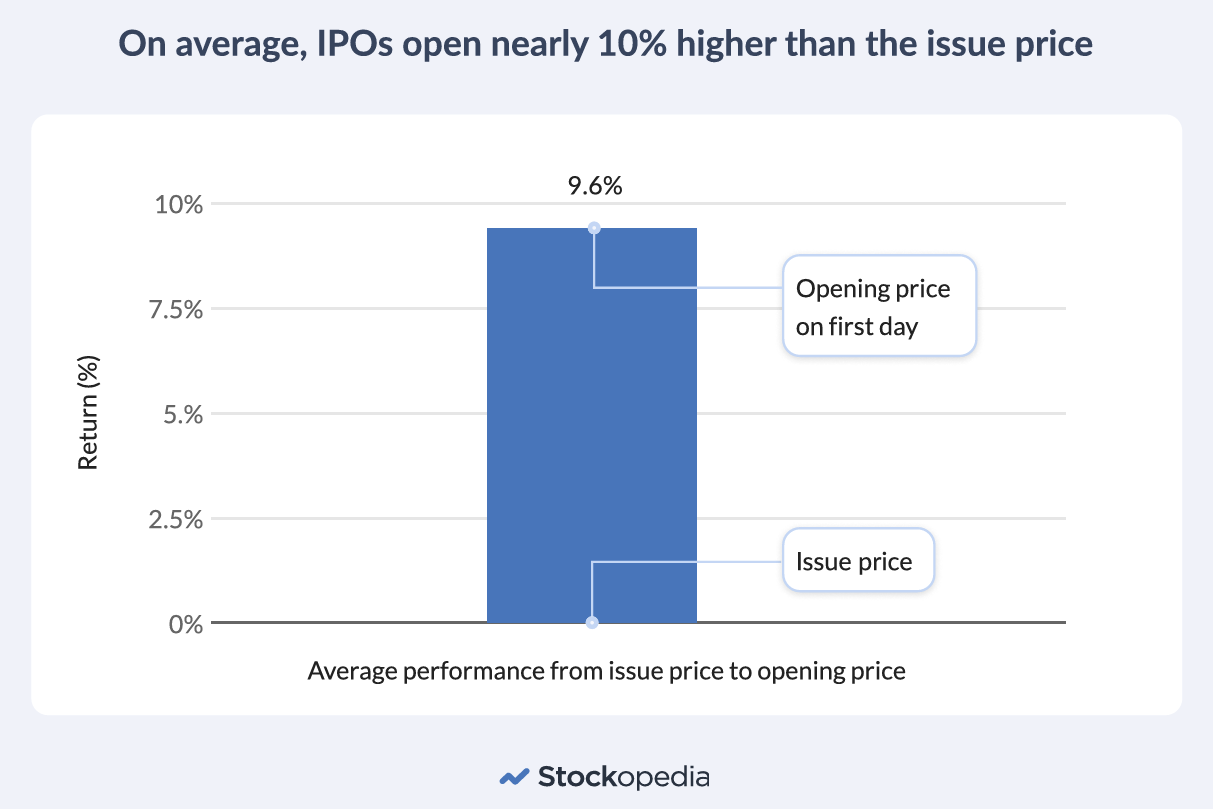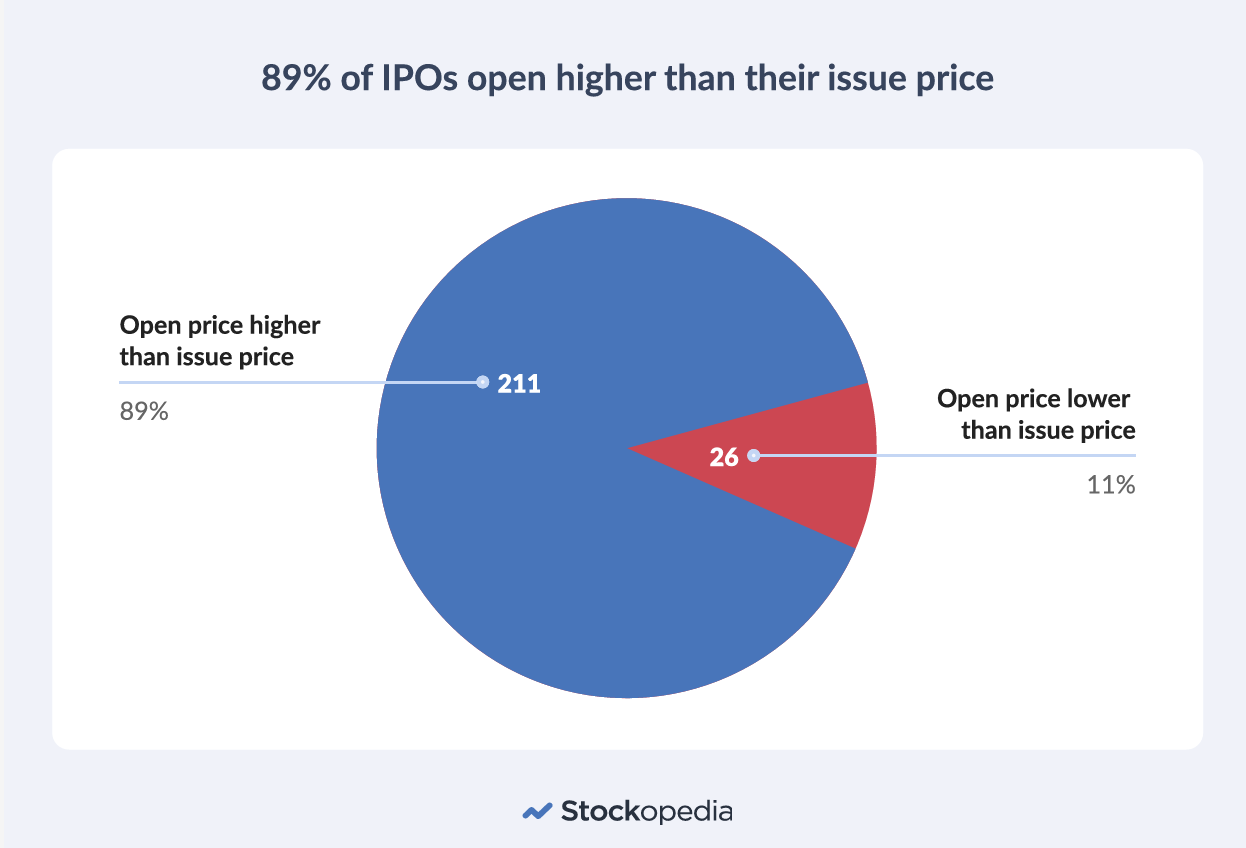Why private investors often lose out on IPOs
One of the primary reasons for this disadvantage is the "price pop" phenomenon. This refers to the tendency for IPOs to experience a significant price increase on their first day of trading, compared to their initial offering price.
This "pop" virtually guarantees a profit for those who buy at the issue price, but these buyers are typically not private investors. The issue price is the price at which a company and its advisors set the shares before they begin trading publicly. Investment banks, working on behalf of the company going public, will typically offer large chunks of shares at this issue price to their institutional clients: large investment funds and pension funds, for example. Meanwhile, private investors are usually shut out of buying at the issue price. Their first chance to buy shares is usually on the first day of trading when the price has already "popped" significantly.
The key takeaway is that the initial excitement around an IPO often obscures the underlying mechanics that put private investors at a disadvantage. Understanding this reality is the first step towards making smarter IPO investment decisions.


